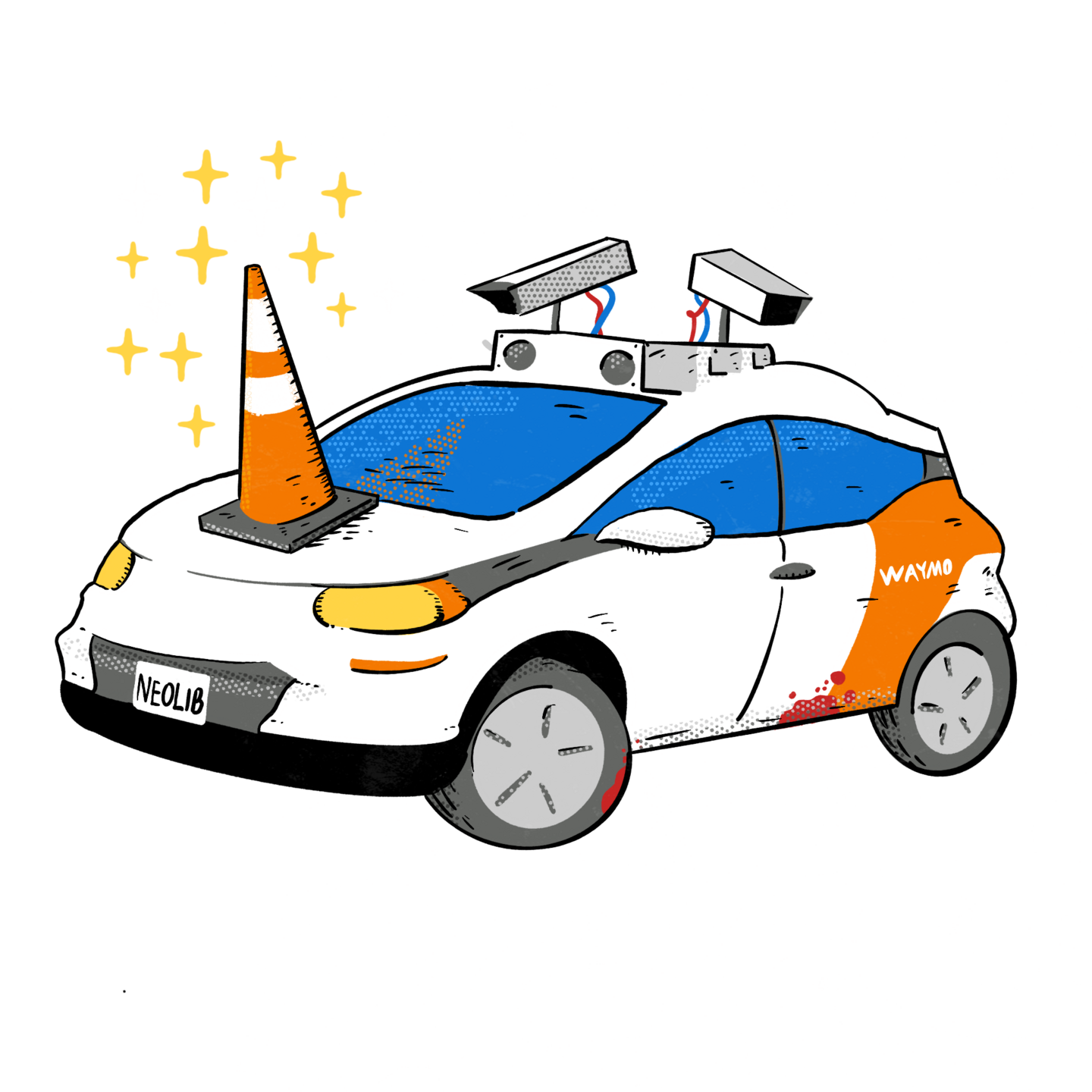
SF Examiner – California ban on driverless trucks heads to Newsom’s desk — again
Editors note: Gov Newsom has never met a lobbyist he didn’t like. Just have to buy him dinner at the French Laundry. I predict he will once again veto this important safety legislation.
See original article by Troy Wolverton at SF Examiner
For the second year in a row, Gov. Gavin Newsom will have to decide whether California should ban larger, typically commercial trucks from going driverless.
The state Legislature on Thursday gave final approval to Assembly Bill 2286, which would mandate that such vehicles have a human operator on board. The legislation now heads the desk of Newsom, who last year vetoed a similar measure.
It’s unclear whether the governor will likewise reject AB 2286. Newsom representatives did not immediately respond to a request for comment.
But the Autonomous Vehicle Industry Association, a trade group that represents companies including Waymo, Cruise, Zoox, Uber and Ford, is urging him to veto the bill. Autonomous trucks promise to improve safety and supply chains, AVIA CEO Jeff Farrah said in a press release. The legislation would undercut the state’s ability to achieve those benefits, he said.
It would also undermine the state’s existing regulatory process, which the Department of Motor Vehicles and the California Highway Patrol are overseeing, Farrah said.
“Last year, Governor Newsom wisely vetoed the same legislation and called it ‘unnecessary,’” he said. “Nothing has changed and we encourage him to veto the bill again.”
Under AB 2286, vehicles weighing more than 10,000 pounds would need to have a human operator if they are operating autonomously on public roads. Such vehicles include everything from large pickup trucks and panel delivery vans to big rigs, buses and heavy construction equipment.
The legislation would also require truck makers to report within 10 days any collisions that happen when they are in autonomous mode and result in property damage, injuries or deaths. Additionally, truck makers would have to annually report all the times the autonomous technology was turned off during operations. And it would require the DMV to submit a report to the Legislature five years after the beginning of testing of autonomous trucks evaluating their performance.
The Assembly passed an amended version of the bill Thursday after the Senate approved it the day before on a 32-3 vote. San Francisco Sen. Scott Wiener voted for it, while five senators didn’t weigh in on the measure.
In vetoing AB 316 last year, Newsom argued that the Legislature had already given the DMV the authority to regulate autonomous vehicles. The agency was already monitoring the testing and operation of them and had solicited public input on potential regulations that would govern self-driving trucks, he said.
Newsom’s veto came a few months after San Francisco city officials, union representatives and community members rallied at City Hall in favor of the bill. The Teamsters Union in particular has continued pushing for the regulation, arguing that it would protect truckers’ jobs and public safety.
“We’ve seen the destruction that small robotaxis can cause, injuring pedestrians and preventing first responders from doing their jobs,” Peter Finn, vice president of the Teamsters International Western Region, said in a press release in February when AB 2286 was introduced. “We cannot allow driverless vehicles weighing ten times that of a robotaxi onto our roads without a human operator.”
Relatedly on Thursday, the Legislature gave its final thumbs-up to AB 3061, sending it along to the governor. That bill would require autonomous-vehicle manufacturers such as Waymo to continue to file incident reports to the DMV even after the agency approves them to fully operate their vehicles without a driver on public roads. Currently, such companies only have to file with the agency such reports — which cover collisions and disengagements of their autonomous technology — while they are still officially testing their vehicles.
The bill would require companies that have gotten DMV approval to operate their vehicles without a driver to file incident reports at least annually. It would also require them to file reports every three months that would include how many miles their vehicles collectively traveled, any traffic citations they received that weren’t dismissed, and any incidents where their vehicles were immobilized.
Under the legislation, the DMV would have to make those reports public via its website — with redactions that would protect individual privacy and company trade secrets — beginning in 2028.
As with AB 2286, AVIA’s Farrah urged Newsom to veto AB 3061. The California Public Utilities Commission is in the process of approving new reporting requirements for manufacturers offering commercial robotaxi services, setting up a potential conflict with the measure, he said.
“AB 3061 takes California in the wrong direction by creating contradictory standards and duplication of ongoing efforts by the state that will cause unnecessary confusion,” Farrah said in a press release.
The measures to regulate the autonomous-vehicle industry come in the wake of an accident last year in San Francisco in which a Cruise self-driving car hit a pedestrian and dragged her 20 feet. Since then, the National Highway Traffic Safety Administration has opened up investigations into Cruise, Waymo and Zoox, three of the leading autonomous-vehicle makers, following a series of collisions and traffic violations.
Waymo has also recalled its vehicles at least twice this year over safety concerns.
In June, Sen. Dave Cortese, D-San Jose, pulled from the Assembly’s consideration a bill that would have given the state’s biggest cities and their next-door neighbors the ability to regulate robotaxi services. Cortese pulled the bill after an Assembly committee gutted the bill following intense industry lobbying.
See original article by Troy Wolverton at SF Examiner
